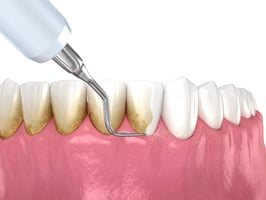Discover the impact of gingivitis on pregnant women and how to maintain oral health during...
Choosing the Right Dental Insurance for You
Discover how to select the perfect dental insurance plan that suits your needs and budget.
Understanding the Importance of Dental Insurance
Dental insurance is an essential aspect of maintaining good oral health. It provides coverage for a wide range of dental treatments, including preventive, restorative, and emergency procedures. Without dental insurance, these treatments can be expensive and unaffordable for many people.
Having dental insurance not only helps you save money on dental care but also encourages regular dental check-ups and preventive measures. By visiting your dentist regularly, you can identify and address dental issues at an early stage, which can prevent more serious problems in the future. Dental insurance gives you the peace of mind that you can access the dental care you need without worrying about the financial burden.
Factors to Consider When Choosing Dental Insurance
When selecting dental insurance, there are several factors to consider. Firstly, you should evaluate your specific dental needs and the needs of your family members. Consider the frequency of dental visits, any ongoing dental conditions, and the likelihood of needing major dental procedures in the future.
Another factor to consider is the network of dentists and dental specialists covered by the insurance plan. Ensure that your preferred dentist is in-network to maximize your benefits and minimize out-of-pocket expenses. Additionally, check if the plan allows you to choose your own dentist or if it requires you to select from a specific network.
Cost is also an important consideration. Compare the premiums, deductibles, and copayments of different dental insurance plans to find one that fits your budget. Keep in mind that cheaper plans may have limited coverage or higher out-of-pocket costs, so carefully review the plan details before making a decision.
Lastly, pay attention to the coverage limits and waiting periods of the dental insurance plan. Some plans may have waiting periods before certain procedures are covered, while others may have annual or lifetime limits on coverage. Make sure the plan provides adequate coverage for the treatments you may need.
Types of Dental Insurance Plans
There are different types of dental insurance plans available, including preferred provider organizations (PPO), health maintenance organizations (HMO), and dental discount plans.
PPO plans offer a network of dentists and allow you to choose an in-network or out-of-network dentist. They provide the flexibility to see specialists without a referral and typically cover a percentage of the treatment cost.
HMO plans require you to choose a primary care dentist from a network, and you can only see specialists with a referral from your primary dentist. These plans often have lower premiums but may have more restrictions on choosing providers.
Dental discount plans are not insurance but provide discounted rates for dental services. With these plans, you pay an annual fee and receive discounted rates when visiting participating dentists.
Consider your preferences and dental needs to determine which type of dental insurance plan is the most suitable for you.
Key Features to Look for in a Dental Insurance Plan
When evaluating dental insurance plans, there are key features to look for to ensure you choose the right one. One important feature is the coverage for preventive services, such as regular cleanings and exams. Preventive care is crucial for maintaining oral health and can help prevent more complex and costly dental issues in the future.
Another feature to consider is the coverage for major dental procedures, such as root canals, crowns, and implants. These treatments can be expensive, so having coverage for them can significantly reduce your out-of-pocket expenses.
Additionally, check if the plan covers orthodontic treatment, especially if you or a family member requires braces or other orthodontic appliances. Orthodontic treatment can be lengthy and costly, so having coverage for it can make a big difference.
Lastly, consider the waiting periods and exclusions of the dental insurance plan. Waiting periods are the time you must wait before certain procedures are covered, and exclusions are treatments or conditions not covered by the plan. Make sure the waiting periods align with your dental needs, and the exclusions are not relevant to your situation.
Tips for Comparing Dental Insurance Quotes
When comparing dental insurance quotes, it's important to consider more than just the price. Here are some tips to help you make an informed decision:
1. Review the coverage details: Carefully read the coverage details of each plan to understand what treatments and services are included. Compare the coverage limits and exclusions to ensure they meet your needs.
2. Consider the network: Check if your preferred dentist is in-network for each plan you're considering. In-network dentists usually have negotiated fees, which can lower your out-of-pocket costs.
3. Evaluate the costs: Compare the premiums, deductibles, and copayments of different plans. Consider your budget and how much you're willing to pay for dental care.
4. Read customer reviews: Look for reviews or testimonials from current or previous customers of the dental insurance plans. This can give you insights into the customer experience and satisfaction.
5. Seek professional advice: If you're unsure about which dental insurance plan is best for you, consult with an insurance agent or broker. They can provide personalized recommendations based on your specific needs and budget.
By following these tips, you can make an informed decision and choose a dental insurance plan that provides the coverage you need at a price you can afford.

